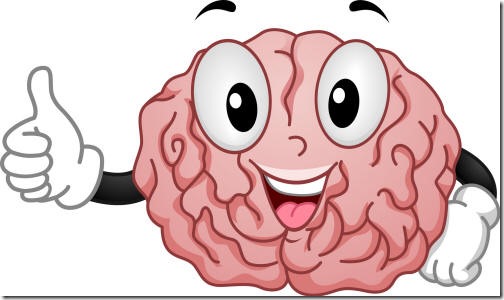Happiness remains a somewhat controversial word when applied to the workplace. I don’t think it should be, but there is this sense that being happy is something you do after work. Then, there’s the problem that describing happiness often involves words like emotion, and feeling – surely all a bit squishy for the workplace?
We don’t usually mind talking about performance, mental toughness, drive, achievement and a slew of other words that convey resilience and action.
The problem is that as human beings, our most influential driving force comes from a well developed part of the brain called the Limbic system – a combination of interlinked structures responsible for emotion, behaviour, motivation and long term memory, among others. The way we behave, make decisions, take action, respond to challenges, and much more is highly influenced by our Limbic system….
Or should I say, our performance, mental toughness, drive, achievement and resilience are highly influenced by the part of the brain that appears to have primary responsibility for our emotional life.
But let’s not forget the brains executive function (there, back with more comfortable words), in the pre-frontal cortex (pfc). This comparatively modern part of our brain is associated with consciousness, self-control, language, and many other things making it the ultimate seat of the rational human. This then, surely, is the part of the brain we take to work, the all powerful.
Hmm, just like the Wizard, Oz, it’s mostly a deception. In his book, The Happiness Hypothesis, Jonathan Haidt evolves a number of existing analogies of the relationship between the limbic system and the pfc, culminating in something along these lines… imagine yourself as the rider of a large elephant. With some work and training you can sometimes get the elephant to go where you’d like it go. But, if the elephant decides it really wants to go left when you want to go right, left it is. In this analogy, you are the rational pfc, the human rider, and the powerful elephant is your limbic system.
The psychiatrist advising the incredibly successful British cycling team, Dr Steve Peters, uses the analogy of a chimp, a human and a computer to describe the limbic system, pfc and the supporting memory; described in his book The Chimp Paradox. Where the mental skill in performance is managing the chimp, which he says “[is] an emotional skill – it’s no different to a bike skill.” So, if you’re an elite athlete, clearly your physical state is critical, but to win also requires emotional skill.
Happiness comes when the chimp is happy, or when the elephant is happy to go with your flow. When you understand how to manage your emotions, you’ll find yourself spending more time in a constructive positive mood, which is conducive to higher creativity, improved relationships, less negative stress and ultimately higher performance.
So, perhaps we’re unaccustomed to thinking of happiness, emotion and feeling in the workplace, but there’s nothing squishy about them – well not if you like the idea of high performance anyway. I’m reminded of one of Tom Peters sayings “hard is soft, and soft is hard,” referring to soft things like the customer experience being the real hard data of a business. Much the same is true with emotion, the real hard data of employee performance, may well be happiness.
Be remarkable,
Mark



